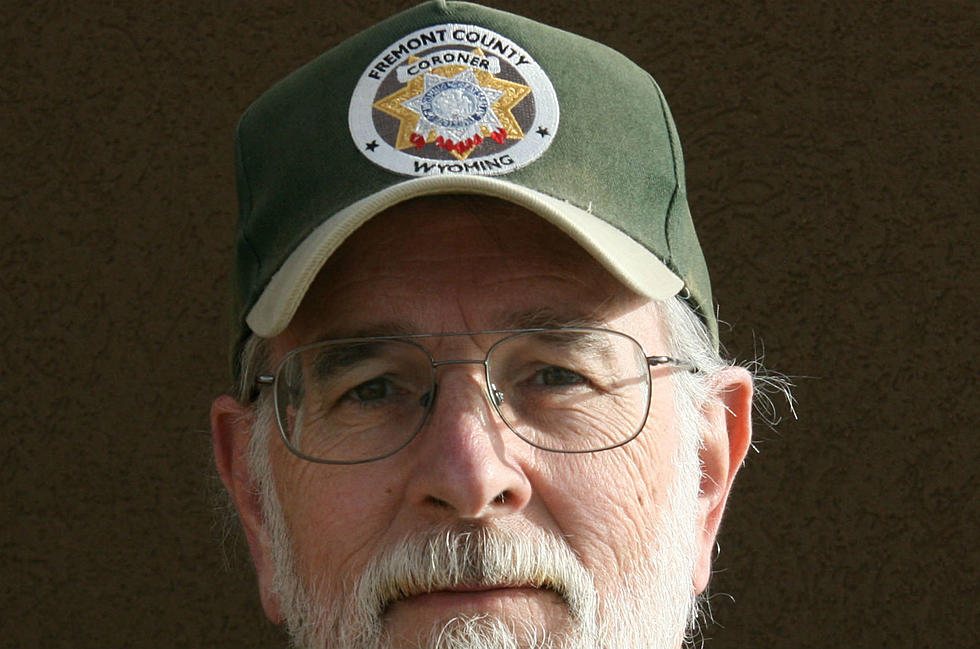
Inquest in Riverton Walmart Officer-Involved Shooting Suspended
Citing obstruction, the Fremont County Coroner on Thursday announced that the inquest into an officer-involved shooting death has been suspended.
The Fremont County Coroner's Office was not notified for five hours in the shooting death of Anderson Antelope, the county coroner wrote in a press release Thursday.
"This causes issues with assessment of the body, scene and time of death, as at this time we have no documentation that anyone officially checked to see if the person was deceased and when," Mark Stratmoen wrote. "Second, on the first of November, we received a letter from the attorney for the City of Riverton denying our request for police records."
Riverton Police shot and killed Antelope outside the Riverton Walmart on Sept. 21.
According to a Fremont County Attorney press release last week, Antelope was severely drunk and attacked the officer with a knife. An analysis of the officer's body armor at the Wyoming Crime Lab corroborated that.
Fremont County Attorney Patrick LeBrun wrote last week that Antelope was drunk and driving an electric cart in and out of the parking lot. At 1:44 p.m., the officer arrived and spoke to Antelope. A veterans' organization was hosting a barbeque outside the store and Antelope was sitting eating a hotdog.
LeBrun said it was clear to the officer that Antelope was drunk. Antelope allegedly refused to blow into a breathalyzer, so the officer decided to arrest him.
A struggle ensued and at some point, a witness briefly distracted the officer. Antelope was allegedly able to retrieve a concealed knife.
The officer had no choice but to stand his ground, LeBrun said. After ordering Antelope to drop the knife "at least twice" the officer fired their weapon, killing Antelope instantly. Eventually, investigators determined Antelope had a BAC of .28.
As is standard process with officer-involved shootings, the Wyoming Division of Criminal Investigation reviewed the shooting and LeBrun subsequently cleared the officer of any wrongdoing.
In an inquest, according to Stratmoen, a jury determines the name, when a person died and their cause of death.
"The office obtains medical and psychological background, as well as completing scene investigation and autopsy," Stratmoen said. "This is not a judicial proceeding, but an independent public presentation of the testimony and evidence in our case."
LeBrun said Stratmoen is not qualified to conduct such a hearing because Stratmoen is not an attorney. The prosecutor added that Stratmoen held an inquest earlier this year in a separate case and "specifically invited his 3-person, hand-selected jury to comment on officers' actions."
Further, LeBrun said, Stratmoen picked a juror who had already drawn her own conclusions and "publicly stated her bias against this officer's actions."
Stratmoen called that accusation "ludicrous."
In the last Fremont County officer involved-shooting death, one of the coroner's jurors had degrees and sociology and psychology to examine the possibility of the incident being "suicide by cop."
"[A]n inquest can be to the benefit of the officer as well as the public's concerns," Stratmoen said.
"Without cooperation and complete information and witnesses to present to a jury, we cannot adequately and objectively present this case," Stratomoen continued. "Therefore, the inquest on this death is suspended and on hold indefinitely.
"Unfortunately, we have seen plenty of examples in other state and national communities of the results of not having transparency in such tragic incidents, which an inquest was designed to mitigate."
A previous version of this story incorrectly stated the amount of time it took for the coroner's office to be noticed of the shooting death. We regret the error.

More From My Country 95.5









